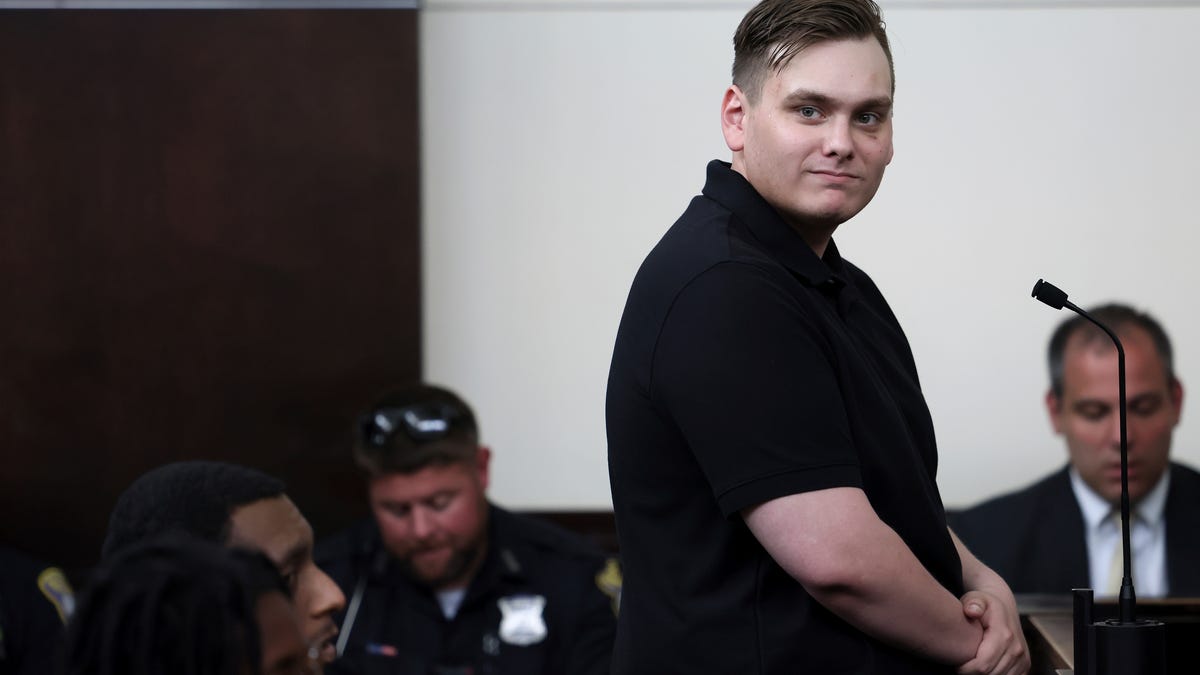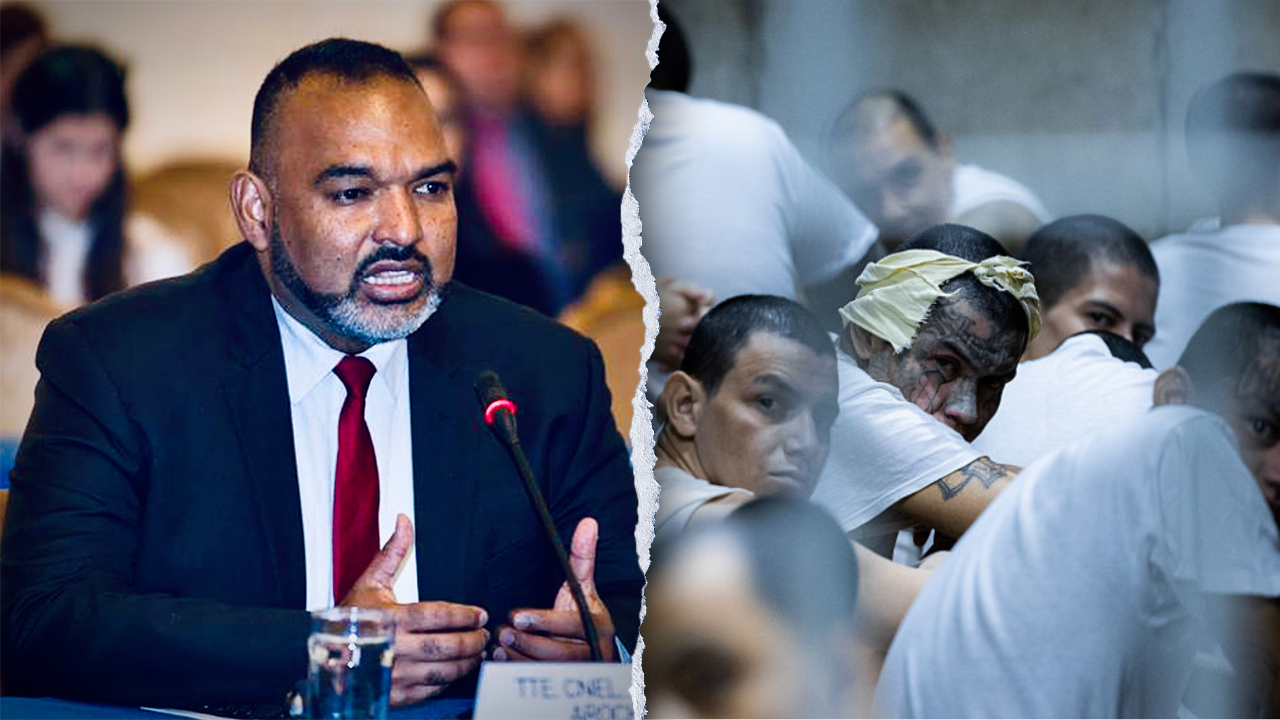New Hampshire
NH attorney general files new complaint against white nationalist group

CONCORD — The New Hampshire attorney general is again accusing a white nationalist group of civil rights violations, this time in response to a demonstration outside a Concord café hosting a drag story hour event.
Attorney General John Formella said Wednesday he has filed a civil complaint saying that the Nationalist Social Club-131 and one of its leaders violated the state’s anti-discrimination law.
The complaint says that Christopher Hood, of Newburyport, Massachusetts, led a group of NSC-131 members stood outside the Teatotaller Café for more than an hour on June 18 shouting homophobic slurs, chanting loudly and saluting in a fashion reminiscent of Nazi Germany.
Teatotaller Café is known on the Seacoast for its original longtime location in Somersworth, which closed earlier this year. It is opening a new location in Dover.
More: NH attorney general takes Portsmouth racist banner case to Supreme Court
Members of NSC-131 also are accused of banging on the café’s windows and making intimidating gestures and comments directed at the performer and others in the café. Such actions, the complaint alleges, amount to an attempt to coerce the business into refusing access to its venue based on their sexual orientation or gender identity.
“Acts of hate designed to terrorize an individual or business into violating our State’s antidiscrimination laws are simply wrong and will not be tolerated,” Formella said in a statement. “We must and will send a clear message that New Hampshire is not and never will be a safe haven for hate groups that commit illegal acts that harm our citizens.”
The Associated Press wasn’t able to reach Hood for comment about the lawsuit. A number listed for him had been disconnected, and an attorney who represented the group in an earlier New Hampshire case did not immediately respond to a phone message.
The complaint comes a week after Massachusetts Attorney General Andrea Campbell filed a similar complain t against the group, Hood and another man in connection with attempts to shut down drag story hours around the state between July 2022 and January 2023. And it marks the second complaint in New Hampshire.
2021 story: Seacoast Rep receives support after neo-Nazi group protests drag story hour
Earlier this year, a judge dismissed trespassing complaints alleging the group violated the state’s Civil Rights Act when it displayed “Keep New England White” banners from a Portsmouth overpass without a permit. Formella’s office has appealed the ruling to the state Supreme Court.
The Anti-Defamation League describes NSC-131 as a New England-based neo-Nazi group founded in 2019 that “espouses racism, antisemitism and intolerance” and whose “membership is a collection of neo-Nazis and racist skinheads, many of whom have previous membership in other white supremacist groups.”

New Hampshire
Concerns about transparency swirl around Nashua performing arts center – The Boston Globe

Thursday’s decision arises from one of more than a dozen lawsuits resident Laurie A. Ortolano has filed against Nashua in the past five years under the RTK law. It clarifies that a 2008 change to the law didn’t narrow the scope of entities bound by it. Legislators added language specifying that government-owned nonprofit corporations are public bodies subject to the RTK law, but that doesn’t mean all for-profit corporations are exempt, the court ruled.
To determine whether an entity constitutes a public body under the RTK law, judges still must conduct a “government function” test, just as they were required to do before the 2008 change to the law. The lower court failed to do that in this case.
In response to Thursday’s decision, Ortolano said it seems fairly clear that NPAC Corp. is using public money to perform a government function, especially considering how involved city officials have been in the entity’s financing and administration.
Ortolano said officials had long reassured the public that the performing arts center would be operated transparently, but then they established the for-profit entity.
“All of the records went dark, and you could not really track accountability of the money any longer,” she said.
Ortolano’s lawsuit alleges the city owns a nonprofit entity that owns the for-profit corporation, but city attorney Steven A. Bolton disputed that. Nashua doesn’t own any of the entities in question, he said. (That said, the city’s Board of Alderman approves mayoral appointees to lead the nonprofits.)
Bolton said he was pleased that the Supreme Court agreed with the trial court’s decision to dismiss the city as a defendant in this case, and he expressed confidence that the money raised for this project was spent appropriately on construction, furnishings, and perhaps initial operating costs.
Attorneys for the remaining defendant, NPAC Corp., didn’t respond Thursday to requests for comment. The corporation maintains it is a private entity exempt from the RTK law, even though its members are listed on the city’s website alongside other municipal boards and committees.
Gregory V. Sullivan, an attorney who practices in New Hampshire and Massachusetts and who serves as president of the New England First Amendment Coalition, said he suspects the superior court will conclude that NPAC Corp. is subject to the RTK law. He commended Ortolano as “a right-to-know warrior” and criticized leaders who resist transparency.
“The city of Nashua has historically, in my opinion, not been cooperative with requests to disclose the public’s records as opposed to other cities and towns in New Hampshire,” he said. “We the people are the government, own the government, and they’re our records.”
This article first appeared in Globe NH | Morning Report, our free newsletter focused on the news you need to know about New Hampshire, including great coverage from the Boston Globe and links to interesting articles from other places. If you’d like to receive it via e-mail Monday through Friday, you can sign up here.
Steven Porter can be reached at steven.porter@globe.com. Follow him @reporterporter.
New Hampshire
New Hampshire governor rejects hearing for Pamela Smart, sentenced to life for husband’s 1990 death

New Hampshire Gov. Kelly Ayotte rejected on Thursday the latest request for a sentence reduction hearing from Pamela Smart, who is serving life in prison for orchestrating the murder of her husband by her teenage student in 1990.
Smart, 57, was a 22-year-old high school media coordinator when she began an affair with a 15-year-old boy who later fatally shot her husband, Gregory Smart, in Derry. The shooter was freed in 2015 after serving a 25-year sentence. Though Smart denied knowledge of the plot, she was convicted of being an accomplice to first-degree murder and other crimes and sentenced to life without parole.
It took until last year for Smart to take full responsibility for her husband’s death. In a video released in June, she said she spent years deflecting blame “almost as if it was a coping mechanism.”
On Wednesday, Smart wrote to Ayotte and the governor’s Executive Council asking for a hearing on commuting her sentence. But Ayotte, a Republican elected in November, said she has reviewed the case and decided it is not deserving of a hearing before the five-member panel.
“People who commit violent crimes must be held accountable to the law,” said Ayotte, a former state attorney general. “I take very seriously the action of granting a pardon hearing and believe this process should only be used in exceptional circumstances.”
In her letter, Smart said she has spent the last 35 years “becoming a person who can and will be a contributing member of society.” Calling herself “what rehabilitation looks like,” she noted that she has taken responsibility for her husband’s death.
“I have apologized to Gregg’s family and my own for the life taken and for my life denied to my parents and family for all these long years,” she wrote.
Smart’s trial was a media circus and one of America’s first high-profile cases about a sexual affair between a school staff member and a student. The student, William Flynn, testified that Smart told him she needed her husband killed because she feared she would lose everything if they divorced. Flynn and three other teens cooperated with prosecutors and all have since been released.
The case inspired Joyce Maynard’s 1992 book “To Die For” and the 1995 film of the same name, starring Nicole Kidman and Joaquin Phoenix.
New Hampshire
Boy dies in crash after allegedly stealing car in New Hampshire

Watch CBS News
Be the first to know
Get browser notifications for breaking news, live events, and exclusive reporting.
-

 Education1 week ago
Education1 week agoVideo: Columbia University President Is Booed at Commencement Ceremony
-

 Technology1 week ago
Technology1 week agoAre Character AI’s chatbots protected speech? One court isn’t sure
-

 News1 week ago
News1 week agoRead the Full ‘Make America Healthy Again’ Report
-

 Culture1 week ago
Culture1 week agoHow Manga Megastar Junji Ito Makes Terrifying Series Like ‘Uzumaki’
-

 News1 week ago
News1 week agoVideo: Trump Repeats False Claims to South African President
-

 Technology1 week ago
Technology1 week agoNow you can watch the Internet Archive preserve documents in real time
-

 Technology1 week ago
Technology1 week agoDiscord might use AI to help you catch up on conversations
-

 Science1 week ago
Science1 week agoTrump Has Cut Science Funding to Its Lowest Level in Decades

















